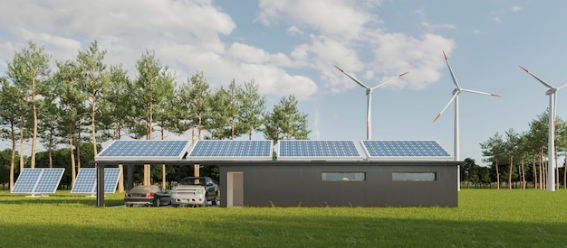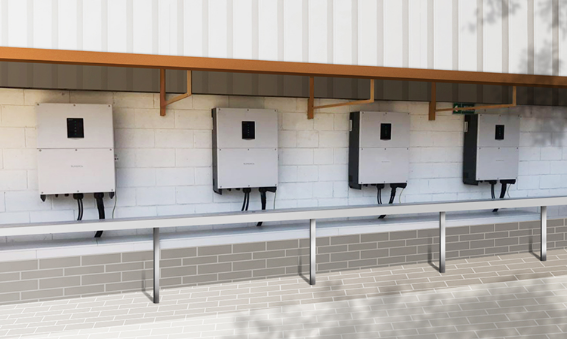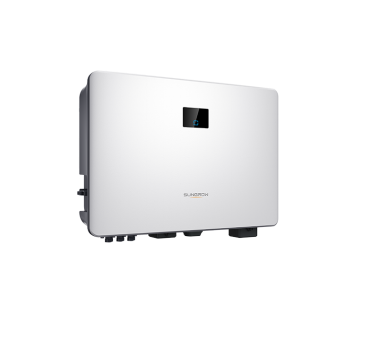As distributed solar and battery adoption accelerates Australia’s shift to renewables, hybrid inverters have become increasingly important. By seamlessly combining solar power generation and storage, a hybrid inverter maximizes the self-use of on-site clean energy while supporting the grid. With varied climates nationally, regionally optimized hybrid inverters ensure consistent, reliable local consumption of on-site generated sun power.
Key Features to Look for in Hybrid Inverters
Selecting an optimized hybrid inverter demands diligent assessment of certain features. As an Australian homeowner, you should look for the following:
- Efficiency in Diverse Climate Conditions
The hybrid inverter should have the ability to sustain high conversion efficiencies even in varying ambient temperatures ranging from tropical heat to cooler zones. Integral safety mechanisms like surge protection and conformal coating are also important as they prevent premature breakdown of the solar PV inverter from extreme weather conditions found across regions of Australia.
- Compatibility with Australian Power Grids
The hybrid inverter must be compliant with relevant Australian standards and grid codes regarding voltage and frequency levels. This allows the bidirectional ability of the inverter to seamlessly interact with the utility network and facilitates self-consumption of solar energy as well as battery charging.
- Integration Capabilities with Solar Panels and Battery Storage
The inverter must be able to easily integrate and optimize outputs from different configurations of solar photovoltaic panels commonly installed on Australian rooftops. It should also be compatible with popular energy storage battery brands available in the local market. This provides flexibility in designing hybrid solar-plus-storage systems for new homes or upgrading existing solar homes.
Top Hybrid Inverters Recommended for Australian Homes
A variety of high-quality hybrid inverters from global brands are gaining popularity among Australian solar installers. Sungrow, a leading inverter manufacturer, offers a range of innovative products suitable for residential setups across the country. With years in the solar business, Sungrow has solid technical expertise and manufacturing capabilities. The following are the top 3 Sungrow hybrid inverter products recommended by Australian installers:
- SG2.0RS-S
Sungrow SG2.0RS-S is a highly efficient 2 kW hybrid inverter recommended for Australian homes with 3-5 kW solar systems. Its compact design enables rooftop installation with a minimal footprint. Its features, like integrated surge protection and climate-resistant casing, ensure reliable performance even in harsh outdoor conditions.
- SG3.0/5.0RS
For larger solar households, Sungrow SG3.0/5.0RS 3-5 kW hybrid inverters provide higher yields through high input voltage range and smart PID recovery functions. Their user-friendly interfaces simplify monitoring through the iSolarCloud app.
- SG5.0RS-ADA/SG8.0/10RS
Homes with over 5 kW solar can benefit from the powerful Sungrow SG5.0RS-ADA/SG8.0/10RS hybrid inverters. Their wide compatibility allows pairing with a variety of solar panel technologies and battery brands available in Australia. The integrated technologies enhance safety and grid compliance.
iSolarCloud is a free monitoring platform that enhances the user experience of Sungrow hybrid inverters. Through a smartphone app, homeowners can view real-time energy generation data and the inverter’s operating status from anywhere. Installers can also leverage it for remote diagnostics and efficient after-sales service.
Hybrid Inverter Installation Tips for Australian Homes
Achieving optimal hybrid inverter operation is heavily related to its installation. Adequately addressing installation nuances related to the variation in Australian climate conditions and local regulatory standards is vital.
- Climate Considerations
Consider factors like appropriate orientation to maximize exposure to sunlight while avoiding direct weather exposure. Installing the hybrid inverter in a ventilated, weather-proof area helps prevent overheating. Also, use suitable mounting to withstand wind loads in cyclone-prone regions.
- Grid Connection Requirements
Familiarize yourself with all applicable Australian wiring standards and your electricity distributor’s technical requirements before setup. This involves correct sizing of cabling and configuration of protection devices per standards. Register the solar inverter system with the local authority as prescribed.
- Solar Panel and Battery Compatibility
Cross-check equipment compatibility before installation. Carefully follow the manufacturer’s instruction manual regarding maximum power point tracking, voltage limits, and other integration procedures. Fully commission all system components to safely operate as an integrated hybrid unit. Proper mechanical installation also avoids vibration issues over time.
Conclusion
Sungrow Hybrid inverters from like the SG2.0RS-S, SG3.0/5.0RS, and SG5.0RS-ADA series are among the preferred choices for Australian solar installers and homeowners. Their finely tuned functionalities help maximize solar self-consumption and optimize solar investment returns. Residents looking to deploy hybrid systems are encouraged to seek professional consultation and product recommendations tailored to their specific energy needs and property characteristics from a locally reputed installer. To learn more about Sungrow hybrid inverters and storage solutions, visit the company’s official website.


